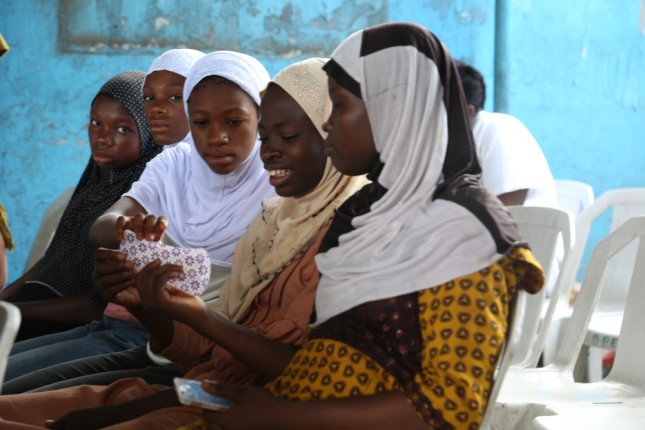-
New Global Health & Gender Policy Brief: Menstrual Health and Management
August 23, 2023 By Maternal Health Initiative Staff
Of the 1.8 billion people who menstruate each month, 500 million are unable to adequately manage menstruation, leading to health, economic, and safety concerns. Menstruation remains a taboo topic that is often overlooked within health sectors. But recent attention from global health, international development, women’s empowerment, and humanitarian organizations has increased awareness for the impact of menstruation on women’s participation in societies and economies.
Despite its potential widespread impact, existing policies that address menstrual health and management (MHM) are limited at both the national and international levels. Thus, MHM must be prioritized in overall policy and practice, and in both peacetime and during humanitarian crises.
In a new policy brief, Menstrual Health and Management, the Wilson Center’s Maternal Health Initiative explores MHM in the context of human security, including economic, personal, and health security, as well as in humanitarian and fragile settings; examine current policies and initiatives to promote proper MHM; and offer recommendations to improve MHM globally.
Menstrual Health and Manage… by The Wilson Center
For MHM to be fully recognized, it should be understood as a human security issue. Human security is a re-focus on issues that have traditionally been seen as “marginal,” or out of the realm of traditional national security. Of the seven major components of human security, MHM’s most explicit impacts are centered in economic, health, and personal security. These impacts include menstruators being unable to afford MHM products, missing education time while menstruating, facing violence related to menstruation, and experiencing increased reproductive tract infections attributed to poor menstrual health and hygiene.
In 2023, in honor of Menstrual Hygiene Day, the World Health Organization (WHO) and the Special Programme of Research, Development and Research Training in Human Reproduction (HRP) partnered with the United Nations Population Fund (UNFPA), the United Nations Children’s Fund (UNICEF), the United Nations Educational, Scientific, and Cultural Organization (UNESCO), Global Menstrual Health Collective, and Columbia University to advocate for countries to provide “promotive, preventative, and curative health services, as well as access to adequate water supply and sanitation in their national universal health coverage policies and strategies.” Additionally, there have been efforts to ensure that MHM is provided in humanitarian settings, where menstruators often do not have access to isolated areas to manage menstruation. Finally, many countries globally have implemented a version of “menstrual leave,” signifying a shift in global governance to acknowledge the impact of menstruation on participation in the workforce.
In order to improve MHM globally and ensure it is addressed across all sectors related to human security, this brief recommends:
- Improve data collection and monitoring at the national level for attitudes and awareness towards menstruation, access to menstrual hygiene products, and barriers to full participation in society.
- Implement inclusive and multisectoral approaches to MHM, recognizing its implications in global health, human security, and WASH sectors.
- Include MHM as a cornerstone of policies and programs related to human security globally.
- Improve MHM provision in humanitarian settings.
- Improve Workplace Policies and Insurance Coverage of MHM.
Sources: FSG, ReliefWeb, UNICEF, United Nations Trust Fund for Human Security, Washington Post, World Health Organization.
Photo Credit: Three young girl in a community holding on a sanitary pad among one another. Omotayo Kofoworola/Shutterstock.com.
 A Publication of the Stimson Center.
A Publication of the Stimson Center.



